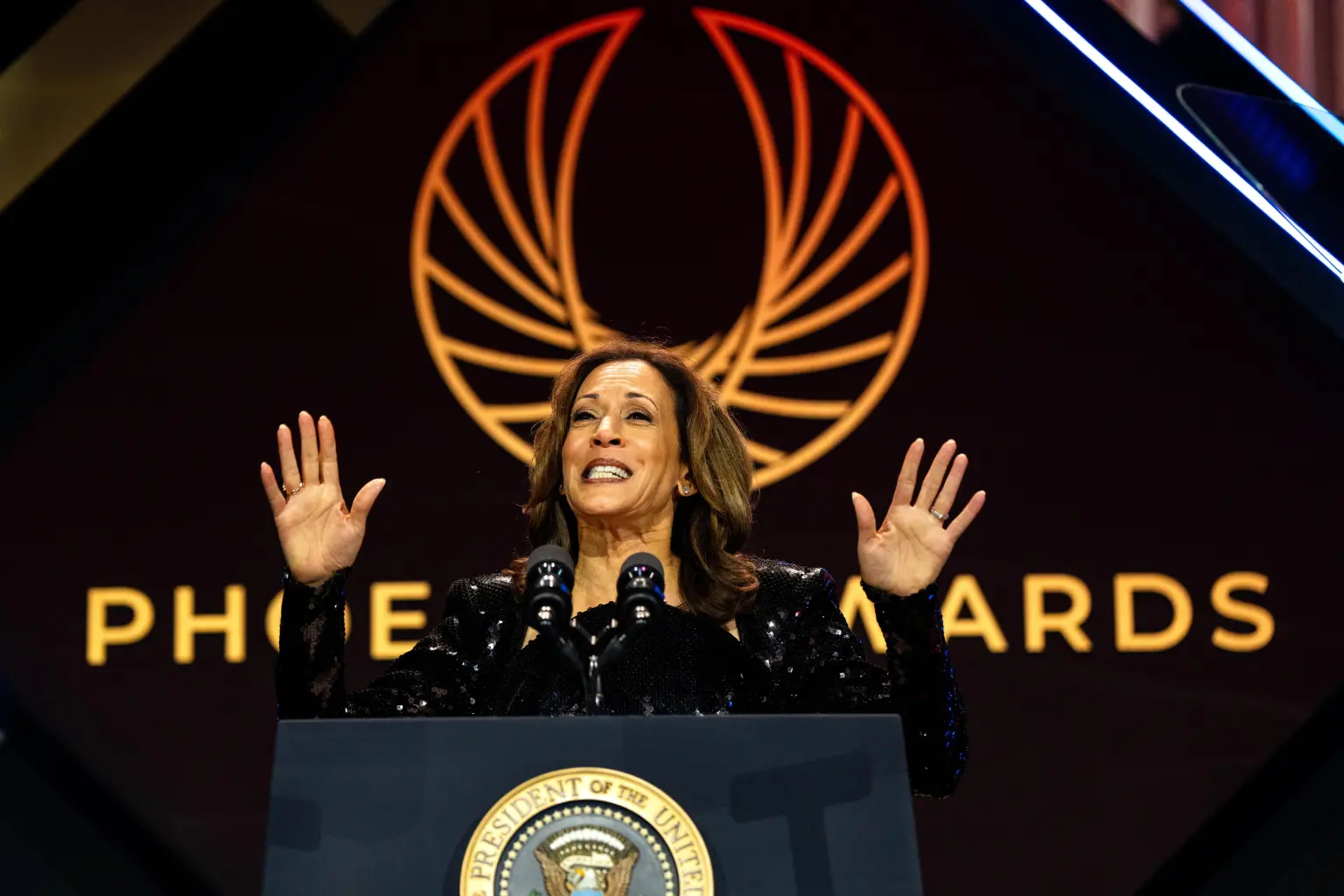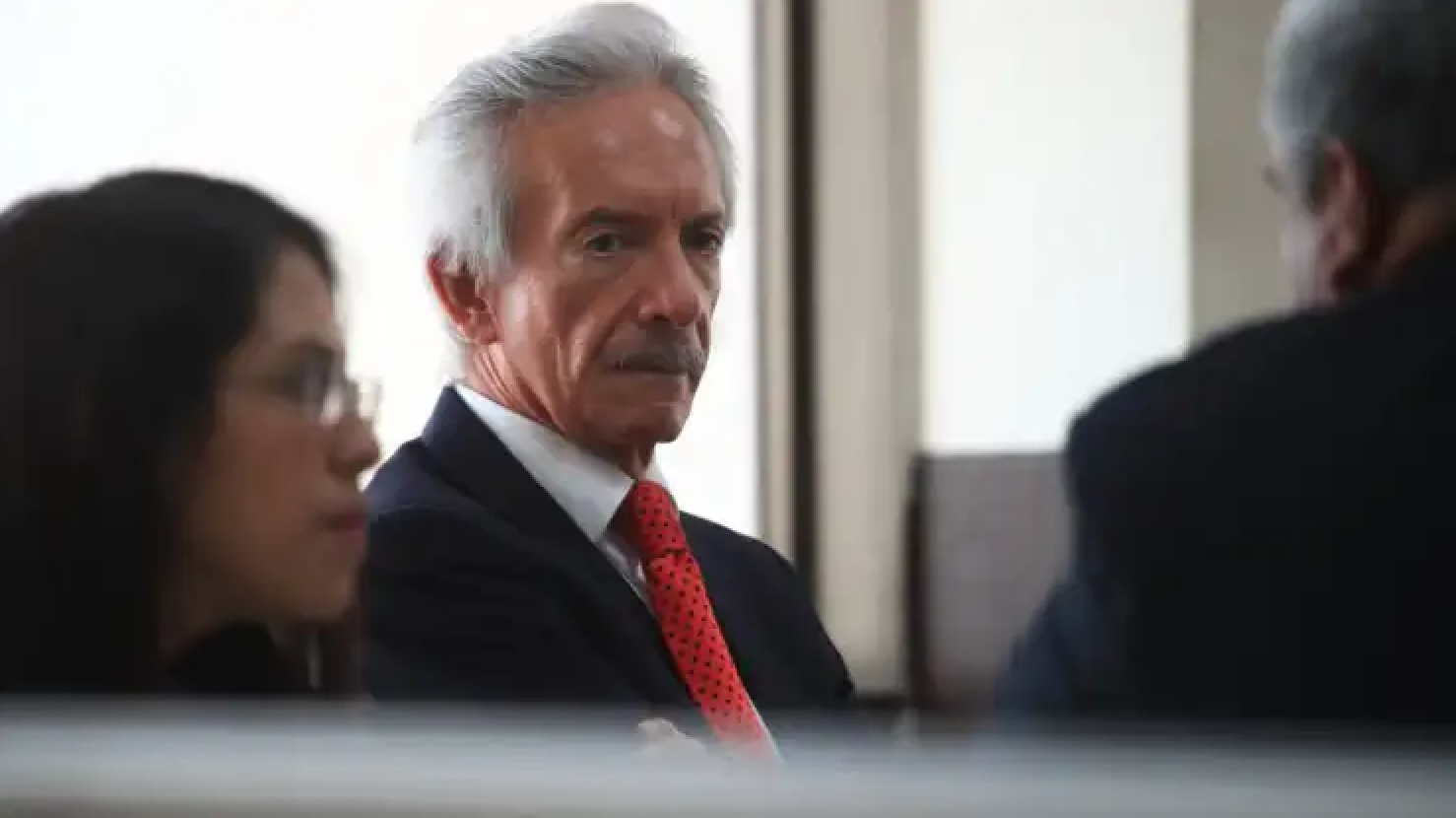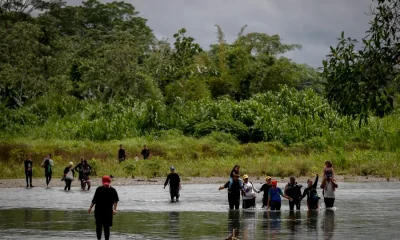International
Record registration of Latino voters after Harris’ arrival in the presidential race

A record number of eligible Latinos have registered to vote after the arrival of Vice President Kamala Harris to the race for the White House, especially young and female voters, in states considered key to winning the November election, which may tip the balance towards the Democratic candidate.
The organization Voto Latino announced at a press conference that it has exceeded the voter registration goal in five key states: Florida, Texas, Georgia, Arizona and North Carolina by registering 112,035 Latino voters so far this year.
María Teresa Kumar, director of Voto Latino, said that the voter registration of her organization increased by 200% and attributed the unusual increase to the arrival of Harris in the race for the Presidency in the United States.
“All this enthusiasm began to gather and accumulate around July 21, when President Joe Biden decided to step aside and nominate and support Vice President Kamala Harris,” the activist said.
Of the total (112,035) registered this year by the organization, 67,092 voters registered after July 21, an unprecedented figure in the 20 years in which the organization has promoted voter participation.
Kumar also highlighted the increase achieved with respect to previous elections. And it is that, for the 2016 election, the Latino Vote campaign in favor of Hillary Clinton managed to register 2,252 Hispanic voters in July of that year.
In the same month, but in 2020, 25,156 Latino voters were registered in favor of President Joe Biden, almost half of the 50,111 who registered between July 21 and July 31 of this year, supported by Harris.
Even the mood of voters since Harris entered has exceeded that awakened by the candidacy of former President Barack Obama (2009-2017).
Ameer Patel, a researcher at Voto Latino, said that since the vice president landed in the presidential race, there has been a “disproportionate amount” of young voters and especially young Latinas who registered to vote.
Of the 67,092 voters registered after July 21, 55% are voters between 18 and 29 years old and 86% are between 18 and 39 years old. Of the total, 69.7% are women.
The enthusiasm of the new voters is not only motivated by the fight for women’s reproductive rights. In fact, the first issue that concerns the voters consulted by Voto Latino is the economy, better wages and income control.
The second issue is the rights to abortion, followed by gun control and security in educational institutions.
In that sense, Kumar highlighted the campaigns advanced by women in South Texas in favor of Harris and his formula, the governor of Minnesota, Tim Walz, with a wake-up call about school shootings, something that was not seen in 2020.
It is precisely in Texas where the most new Latino voters have registered Voto after the arrival of Harris with 17,000 registered voters, followed by Florida with 13,600, Georgia (11,500), North Carolina (7,500) and Arizona (4,500).
Kumar stressed the importance of these votes especially in states where President Joe Biden won by just over 10,000 votes, such as Georgia and Arizona.
“Harris has been stealing votes from Donald Trump in North Carolina, Pennsylvania, Arizona and Nevada, key states in this battlefield,” the activist said.
He added that the vice president is not only attractive to independent voters but also to Republicans, a clear disadvantage for former President Trump.
More than 36 million eligible Latinos will be able to vote this year. But of them, only 26 million are registered to vote, and only 16 million voted in the last presidential elections.
Activists’ efforts have focused on encouraging 20 million Latinos who could pay, but they don’t.
Kumar insisted that there is an incredible opportunity to strengthen the political voice of the Hispanic community, which although it is not monolithic has mostly opted for the Democrats.
The message was delivered right in celebration of National Voter Registration Day.
International
Deportation flight lands in Venezuela; government denies criminal gang links

A flight carrying 175 Venezuelan migrants deported from the United States arrived in Caracas on Sunday. This marks the third group to return since repatriation flights resumed a week ago, and among them is an alleged member of a criminal organization, according to Venezuelan authorities.
Unlike previous flights operated by the Venezuelan state airline Conviasa, this time, an aircraft from the U.S. airline Eastern landed at Maiquetía Airport, on the outskirts of Caracas, shortly after 2:00 p.m. with the deportees.
Interior Minister Diosdado Cabello, who welcomed the returnees at the airport, stated that the 175 repatriated individuals were coming back “after being subjected, like all Venezuelans, to persecution” and dismissed claims that they belonged to the criminal organization El Tren de Aragua.
However, Cabello confirmed that “for the first time in these flights we have been carrying out, someone of significance wanted by Venezuelan justice has arrived, and he is not from El Tren de Aragua.” Instead, he belongs to a gang operating in the state of Trujillo. The minister did not disclose the individual’s identity or provide details on where he would be taken.
International
Son of journalist José Rubén Zamora condemns father’s return to prison as “illegal”

The son of renowned journalist José Rubén Zamora Marroquín, José Carlos Zamora, has denounced as “illegal” the court order that sent his father back to a Guatemalan prison on March 3, after already spending 819 days behind barsover a highly irregular money laundering case.
“My father’s return to prison was based on an arbitrary and illegal ruling. It is also alarming that the judge who had granted him house arrest received threats,” José Carlos Zamora told EFE in an interview on Saturday.
The 67-year-old journalist was sent back to prison inside the Mariscal Zavala military barracks on March 3, when Judge Erick García upheld a Court of Appeals ruling that overturned the house arrest granted to him in October. Zamora had already spent 819 days in prison over an alleged money laundering case.
His son condemned the situation as “unacceptable”, stating that the judge handling the case “cannot do his job in accordance with the law due to threats against his life.”
International
Miyazaki’s style goes viral with AI but at what cost?

This week, you may have noticed that everything—from historical photos and classic movie scenes to internet memes and recent political moments—has been reimagined on social media as Studio Ghibli-style portraits. The trend quickly went viral thanks to ChatGPT and the latest update of OpenAI’s chatbot, released on Tuesday, March 25.
The newest addition to GPT-4o has allowed users to replicate the distinctive artistic style of the legendary Japanese filmmaker and Studio Ghibli co-founder Hayao Miyazaki (My Neighbor Totoro, Spirited Away). “Today is a great day on the internet,” one user declared while sharing popular memes in Ghibli format.
While the trend has captivated users worldwide, it has also highlighted ethical concerns about AI tools trained on copyrighted creative works—and what this means for the livelihoods of human artists.
Not that this concerns OpenAI, the company behind ChatGPT, which has actively encouraged the “Ghiblification”experiments. Its CEO, Sam Altman, even changed his profile picture on the social media platform X to a Ghibli-style portrait.
Miyazaki, now 84 years old, is known for his hand-drawn animation approach and whimsical storytelling. He has long expressed skepticism about AI’s role in animation. His past remarks on AI-generated animation have resurfaced and gone viral again, particularly when he once said he was “utterly disgusted” by an AI demonstration.
-

 International4 days ago
International4 days agoFederal court blocks Trump’s use of Enemy Alien Act for deportations
-

 Central America4 days ago
Central America4 days agoHonduran group in U.S. pushes for voter registration to prevent election fraud
-

 Central America4 days ago
Central America4 days agoKristi Noem in Latin America: Talks with Bukele on expulsions and security policies
-

 International4 days ago
International4 days agoEcuador oil spill worsens as containment dam collapses
-

 Central America3 days ago
Central America3 days agoNicaragua denounces Costa Rica’s position in SICA as aligned with foreign interests
-

 Central America3 days ago
Central America3 days agoNicaragua’s new judicial law consolidates power in Ortega and Murillo’s hands
-

 Central America3 days ago
Central America3 days agoPanama’s president declares Darién gap ‘closed’ amid sharp drop in migrant flow
-

 International3 days ago
International3 days agoMarco Rubio warns Venezuela against military action against Guyana
-

 International1 day ago
International1 day agoSon of journalist José Rubén Zamora condemns father’s return to prison as “illegal”
-

 International1 day ago
International1 day agoMiyazaki’s style goes viral with AI but at what cost?
-

 Central America1 hour ago
Central America1 hour agoPanama police clarifies that Interpol alert for Martinelli is still pending
-

 International1 hour ago
International1 hour agoDeportation flight lands in Venezuela; government denies criminal gang links
-
Central America2 days ago
Nicaragua revokes legal status of 10 more NGOs, bringing total to over 5,600















